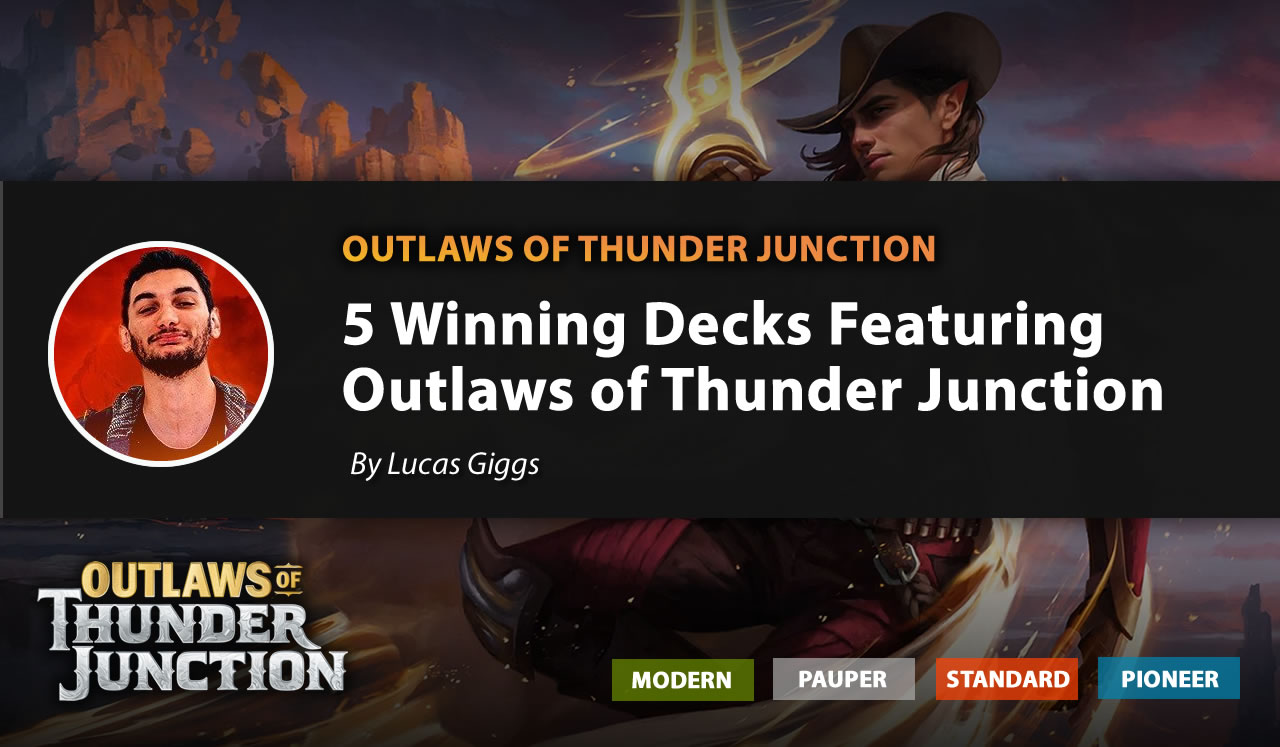How to Beat Tilt and Win More Games in Magic: The Gathering!
What is Tilt?
If you recognize this picture, you probably know what "tilt" is.

Here is the animated version:
If you have played online Magic, you are probably familiar with the concept of "tilt". If you have played MOBA's, poker, or other esports, you have likely encountered it there too. Even if you're just a casual kitchen-table Commander player, you have more than likely experienced the feeling. Odds are, you have encountered it in your day-to-day life as well. You probably know what I'm talking about, but for the sake of clarity, let's put a definition on the word.
Tilt is an emotional state in which one responds to events with sub-optimal reactions. It is a state where you experience a lot of negativity in your analysis of any situation, causing you to experience negative emotions such as anger, sadness, or exasperation that cloud your judgment. In layman's terms, it's the emotional equivalent of throwing your arms up and sighing at anything that comes your way.
Why is Tilt Important?
Tilt is important for a few reasons.
IT AFFECTS YOUR GAMEPLAY.
By definition, if you are tilting, you are making suboptimal decisions, and you don’t want that.
IT IS SELF-SUSTAINING.
Like a maëlstrom creating a whirlpool that slowly drags you in, tilt can blow out of proportions even outside your gaming level.
IT AFFECTS YOUR SURROUNDINGS.
A few studies have been conducted regarding toxic behavior caused by tilt. These studies were conducted in relation to MoBAs, where online anonymity exacerbates toxic behaviors, but similar effects can be seen in Magic, albeit not as intense.
Your tilt benefits no one, save for a few trolls who delight in watching your meltdown. As such, it is important that you, and everyone around you, have the tools to deal with it. Whether you want it or not, emotional responses will be there every time you play the game. As such, whether you consider it a part of the game itself or not, there is no going around it, so you might as well get ready.
Everyone tilts. Even the very best among us are all human beings, emotional creatures. Emotions are the things our rational minds cannot fully control. Sure, you can hijack your brain and manage them, but like shaping a river, you cannot prevent them from flowing. Fear is natural, it is OK to experience it, but you should work on your courage to prevent it from dominating you. The same is true for tilt: it is OK to experience it, there is nothing to be ashamed about. And recognizing that is the first step into finding a way to keep it under control.
The Pros Also Tilt: Examples
If you doubt how much professional actually tilt, take a look at this example from Pro Tour Hour of Devastation in 2017, game 5 of the semi-finals, PVDDR vs Yaw Wing Chun:
This might be the most famous Pro Tour blunder in recent history, or ever, but let’s not focus on the brain fart for this one. You can clearly see, for a full minute and a half after the blunder at least, that Yam is very agitated. Small slaps on his face, nearly jumping off his seat, rash movements… Even at the end of the match, after his eventual defeat, he had to walk a few steps to fight the frustration. I don’t blame him at all, I feel a lot of pain every time I watch that clip. But thankfully, Yam could more or less recover to finish his match, play the rest of the game at the same level as he had played the rest of the event against one of the world’s finest. He did end up losing, proof that undoing your tilt will not be the key to everything being alright, but I find it inspirational that one could play such a high level game in spite of being in such a mental state.
Tilt is an emotional state. As such, we all experience it in very different ways. Anything that comes past this point will be my humble advice and ideas to combat tilt, but as with most things, there is no known and widely available antidote. Take what you can, apply it to your own life with creativity and responsibility. Tilt cannot be eradicated, but that does not mean we cannot work together to reduce its impact.
How to Deal With Your Own Tilt
Tilt is a hard beast to manage. By its nature as an emotional state where your judgment is clouded, if you are experiencing it, getting out of there will be harder than getting in it. The first solution to this conundrum is, obviously, to never get tilted. Unfortunately, that is not an option. Tilt is not a binary switch, where you are tilted or you are not. It grows slowly but surely, and even a bit of unnoticed tilt can push you further into that pit. That’s the tricky thing with suboptimal decisions: they never come alone.
Tilt is not a binary switch, where you are tilted or you are not
That doesn’t mean that you cannot try to prevent the worst of the blow. Recognizing tilt creeping up on you is very important. Maintaining yourself in a state where your head is clear enough to steer away from troubled waters is the surest way to not get lost in them.
THE ADVICE TO DETECT TILT CAN BE CUT DOWN IN TWO:
Know what creates the tilt state for you.
Not all of us respond the same to similar situations, but usually, a streak of bad luck, an annoying opponent, or a series of avoidable blunders can launch you into a spiral. There might be a lot more, even petty things, such as a friend playing a card you think should be banned during your Commander nights or even someone else tilting. Whatever it is, make a mental note that these are potential triggers for you. That way, when you next encounter it, you will know that it’s time to keep an eye on your emotional response. Emotions are far from mechanical, and not everything on that shortlist of yours will trigger the tilt state, not all the time. But you will be better off safe than sorry.
Know what are the early stages of your tilt.
Tilt can take multiple forms for a single person, as we said, so again you want to broad on this checklist. The idea is for you to see the issue arriving before it becomes self-sustaining. For example, I for one know that the thought “Again?!” is a sign of an early tilt, and whenever that “Again?!” pops up in my head, I know I have to take a bit of time to deal with the situation that’s coming.
FEEDBACK IS KEY
Feedback is great for this part. As we said, it can be challenging to recognize the tilt state, but your friends can spot a change in your attitude or abilities. They can help you recognize your triggers or your symptoms far more objectively than you could while tilted, if you are willing to take their advice. Tilting can get very personal, but get help wherever you can and you will be all the stronger for it.
Sadly, this alone might not be enough. After all, recognizing a bus coming your way is one thing, but all the good that will do if you can’t dodge or stop it. You need the mental fortitude to fight it back. Maybe you need to repeal an incoming tilt. Maybe it just blew past your radars and you’re seeing it only now. Whatever the case, you need to be able to fight it back.
This is the most personal part of the process, to each their own. I encourage you to find your own process through experience, or with the help of a mental health professional if you are currently seeing one. Nevertheless, here are a few tips that have worked for me or my friends in the past, feel free to try them out!
Tips to Deal With Tilt
GENERAL TIPS TO DEAL WITH TILT
You don’t have to fight it all the way back.
As we said, tilt is not an on/off switch, it is a continuum, and the more you feed it the worse you will play. Even if you are too deep to completely fight it off in your current situation, every step you make in the right direction will have positive consequences on your mental state and on your abilities. I also find that small victories are some of the best ways to reverse the spiral.
Have more than one process at hand.
There are many kinds of tilts and even more situations depending on your surroundings, make sure you have at least a little something in every case.
Take your time.
In this example, from Worlds 2006, Makihito Mihara was more than likely in emotional distress after realizing that he had gone off with an error in his calculations. He did take the slow play warning, but by taking the time to calm down and reviewing every available option he had, played to his outs. And it paid out, with a bit of karma from the top of his deck. Please also take a minute to appreciate Paulo’s sportsmanship and good humor after his opponent just lucked the win out, when he could have tilted too in this spot.
Get away from it.
If you are jamming the Arena ladder or MTGO leagues, now is a great time to get away from the screen for an hour or so to let the pot cool down. You might feel like winning will get you out of this mental state, so you keep jamming more games, but the more you jam the less you are in condition to actually win a game. There is no point in trying harder in this state, recognizing this can be hard but it’s the best way to stop the loop. Go touch some grass. You can break the losing streak when you get back.
PHYSIOLOGICAL TIPS
Breathing seems to be the key.
Focusing on your breath is a form of meditation that can be used in a pinch wherever you are, and it will help you scale back the tide, even a bit.
Drink a couple of long sips of water.
This will help regulate your breathing.
Physical exercise can be great.
If you’re at home, online or are in-between rounds, don't dismiss this option. Push-ups, weight lifting, pull-ups, sit-ups, go for what you can. Setting your mind on your body for ten to twenty seconds can do the trick, while also helping with your breathing and it’s just healthy. I do ten push-ups when I feel tilted online, then get back to the game.
MENTAL TIPS
Keep a few mind puzzles at hand.
In between rounds, things like sudoku or crosswords can be a great way to really force your mind outside the tilt’s pull. Don’t forget to have some that require no support too, so you can do them during a game.
Mentally reciting a children’s song, a tongue-twister, the reverse alphabet or the Fibonacci sequence only takes a few seconds during the game and will pull your focus away from the black hole at the center of the tilt.
Art is great.
A good story will carry you off to pleasant lands anytime you need to. Read a good book, comic, write one yourself, draw something, listen to good music with inspiring lyrics.
Stay the F away from social media.
No need to get into how bad those things are for your mental health generally speaking, suffice to say that if you’re tilting, you are in no condition to mentally compare to a filtered version of your friends bragging online.
Self-awareness is key.
By essence, it can be hard to recognize when something is not working to fight the tilt off. Try to come back to it a few hours later and check if you think your process works. Do this regularly too, the fact that a process worked once does not mean it always will.
Do not despair.
Like any process, the more you train for it, the better at it you’ll get. No need to tilt because you can’t shake your tilt away.
SOCIAL TIPS
Take tips from your friends.
Everyone tilts, and everyone has their own way of dealing with it. Their tips might not work for you, but it won’t hurt to try something new.
Vent out to your friends about it.
Now obviously don’t be obnoxious about it, no-one likes a walking salt mine complaining all the time. But if you’re tilted between rounds, starting a conversation with “I’m tilted right now.” usually leads to friends helping out. They can help you laugh about it, see things through new perspectives, share tips or simply take your mind off of it for a while.
Take feedback, again.
A friend telling you that you seem a little off is the best way to detect tilt and start applying your process, or spot something that is definitely not working to fight it off.
Dealing with someone else’s tilt
After reading this amazing article you found online, you probably have it all under control, right? Great!
But not everyone is so lucky. Most people are actually unaware of the very existence of tilt, and they just feel it as a flow of emotions like any other. Or perhaps they know about it, but never thought to process it. Whatever the case, everyone tilts. What can you do about it?
Do you even want to do something about it? I would argue yes, most of the time. Tilt benefits no-one, not you, not the ones tilting, not the ones around them. As such, I believe it is better to lend a helping hand to those in need.
There is one case that does deserve a mention though. If you are playing on a competitive stage, where there are actual stakes (such as a qualification for a bigger event, or actual money on the line), you might feel inclined to profit from suboptimal plays from your opponent. There is an ethics question in here, one I will not cover today.
MY OWN HANDS ARE NOT CLEAN HERE.
I remember once, in the Top 8 of a PPTQ, the match-up was generally in my favor but my opponent did have an Aurelia I had to worry about. I opened a seven card hand with a removal for Aurelia and a few lands, so I felt safe. My opponent struggled and couldn’t find his Aurelia, and grew more and more frustrated, particularly after losing to me during the rounds. Finally, he found it and played it, which was no problem for me thanks to my removal. I draw for turn, and here I do a Chris Pratt face as I put a land into my hand. I shuffle my cards around, shrug a bit, and play the removal with that big smile that screams “well, I got lucky”.

My opponent didn’t recover his mental abilities after that blow, and I won the game and match.
I am actually not very proud of that moment, even five years later I still think about it. I saw the opportunity to act upon the tilt and I took it without thinking, but had I thought about it I probably wouldn’t have. I was already ahead, I didn’t need to do that, and that person was actually very pleasant to me in the previous round and between rounds. But I know at least a few people who really would not have thought about it twice and would have done it again if they had the chance. You can decide the limits of your own ethics.
But I would argue that regardless of context, if you are outside of a game, there is no reason to aggravate someone else’s tilt. Live in a world where everyone helps each other out, and you will find the results will be far better for you and the one you are helping than if everyone was pulling each other down.
TIPS FOR DEALING WITH SOMEONE ELSE'S TILT
Be that as it may, you might want to help a friend in need, or an opponent you will not meet again today, and simple “git gud” might not do the trick for some reason. Here are a few guidelines to keep in mind when being helpful:
Your emotional well-being is more important than whoever you are trying to help. You won’t help anyone get out of tilt if you are tilting yourself. Make sure you are not likely to get dragged down in the mud.
Start small. A simple question like “Are you OK?” or “Can I do anything for you?” can go a long way. They might not be interested in your help, so you want to respect that by not going too big too fast.
Do not engage in negativity. There is bound to be a flow of it coming your way if they open up. But the last thing you want to do is to correct someone who is talking about being unlucky because of X because you know Y. Tilt is about emotions, trying to fix it through rationalization is usually bound to backfire and create an argument.
Be very careful online. Without tonality, you can never be sure what is meant or how your own words will be interpreted. I would actually recommend not engaging at all online.
Let them vent. That’s usually what it’s all about in the end, particularly if you don’t know them very well. No big deal, just nod politely and let it out.
Try to raise awareness to their tilt. This has to be done in a delicate fashion, since it can also spark an argument. But it can also pay dividends. Maybe you could also share an amazing article you found online about tilting, who knows, maybe it’ll help!
Slowly change the subject. If you are with a friend, go with inside jokes or actual topics of conversation. If you’re with your opponent, discuss their deck choice, some fancy cards they have in their deck or how they sideboard against this or that match-up. Their shirt or their haircut, if it's fancy, doesn’t really matter. As before, the idea is to fight the pull of the tilt.
End on a positive note. Encouragements, jokes, compliments, anything that works for you. Bad emotions simmer as bad as a rotten fish, make sure they aren’t the ones left simmering.
Again, if you feel this isn’t working, just let it go. No shame in saying you didn’t mean any harm and leaving in silence. Sometimes, people just need time for themselves.
Parting words
Well that was a walk, and we have covered all the basics of tilt. As you figured, it is a massive subject, and we have not dug it half-way up. But with all this in mind, you probably have a lot to work on.
Keep an eye open towards your own feelings. Stirr away from the center of the maelstrom, whichever way suits you best. Help those around you. It sounds so simple, but I’m sure you understand how much work it is, and how important it gets. Keeping your mind open and your options at hand is the most important here, always try new things.
I hope this has been helpful to you. For most of us, these things go without saying, but saying them, or reading them at any rate, can help lay down the foundations to a path of self-betterment. If this has helped you take a single step, I am very happy for this article.
Please let us know if you have any tips to fight the tilt off. As I said several times now, sharing is a great way to move through it, and the topic is more than open to discussion. There are many other resources and studies that have been made on the matter: share them with us!
Until then, la bise!
If you liked this article maybe you will also find interesting on of the following ones The Art of Sideboarding by Remi Fortier, What is Tempo?
Sign Up for MTGDecks newsletter
You'll receive a weekly email with more articles like this.
MTG Theory specialist
Moudou might not have many accomplishments to his name, but his numerous articles have helped many understand the basics of some of the most important theories in Magic. He now returns after a break to share some more timeless knowledge.








